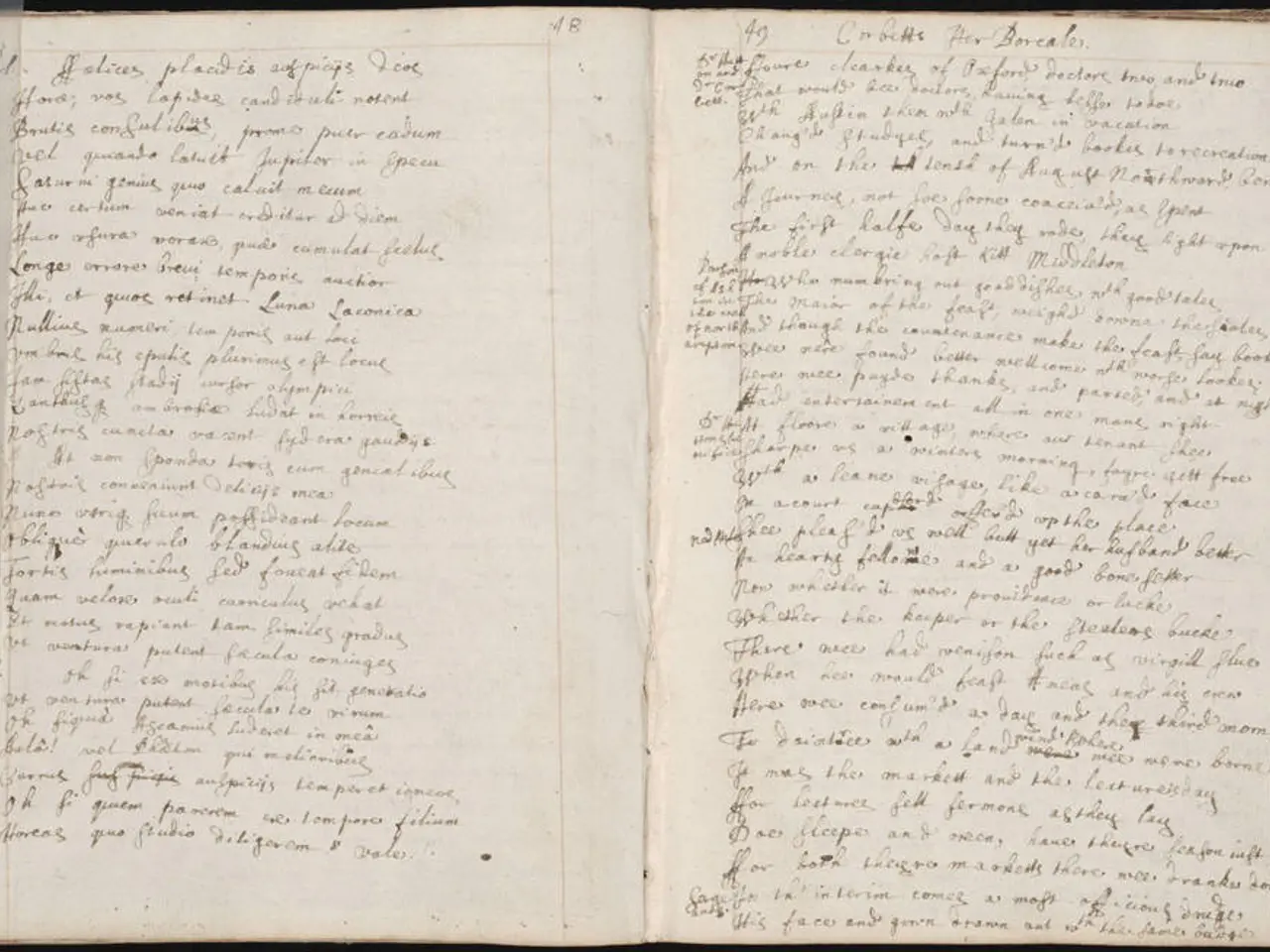Exploring the Narcissus and Echo Tale: The Modern Connection to Narcissism and Echoism
In the realm of Greek mythology, the tale of Echo and Narcissus serves as a timeless representation of human behaviour, offering insights that resonate deeply in the modern world. This story, penned by the Roman poet Ovid in his book "Metamorphosis," unfolds the tragic love story between Echo, a nymph, and Narcissus, a handsome young man.
Echo, cursed to repeat the last words of others, fell deeply in love with Narcissus. However, her affections were unrequited, as Narcissus, entranced by his own reflection, failed to notice her. This classic tale forms the basis for modern terminology, giving birth to the concepts of narcissism and echoism, and their contemporary counterparts, NPD (Narcissistic Personality Disorder) and codependency.
Narcissism, as a personality trait, is characterised by self-importance, self-absorption, and a spectrum that can potentially indicate NPD. Diagnostic criteria for NPD, as defined in the DSM-5-RT, include a pervasive sense of grandiosity, fantasies of perfect love, power, brilliance, beauty, or success, a sense of being elevated above all others, a need for admiration, a sense of entitlement, exploitative behaviours, lack of empathy, arrogance, envious behaviour, and a belief that others are envious. Narcissus, the fictional character, embodies these traits, falling in love with his own reflection and ultimately dying due to starvation and thirst.
On the other hand, modern echoism, or codependency, is understood as a learned behaviour that can lead to one-sided, unfulfilling relationships. Codependent people often find themselves in relationships with narcissists, sacrificing their own wants and needs in the process. Codependency can cause a sense of guilt for asserting oneself, low self-esteem, fear of abandonment, lack of personal boundaries, a compelling need to be in a relationship, a sense of responsibility for the actions of others, doing more of one's share, a need for recognition and approval, difficulty or fear of making decisions, and lack of trust in others.
Josiah Teng, a mental health clinician from New York City, suggests that the story of Narcissus and Echo demonstrates the consequences of extreme self-involvement and selflessness. He emphasises the importance of finding a balance, as both narcissism and codependency can have detrimental effects on one's life. The myth of Echo and Narcissus serves as a cautionary tale for both narcissism and codependency in the modern world, reminding us of the importance of self-awareness, empathy, and healthy relationships.
Read also:
- Peptide YY (PYY): Exploring its Role in Appetite Suppression, Intestinal Health, and Cognitive Links
- Toddler Health: Rotavirus Signs, Origins, and Potential Complications
- Digestive issues and heart discomfort: Root causes and associated health conditions
- House Infernos: Deadly Hazards Surpassing the Flames








